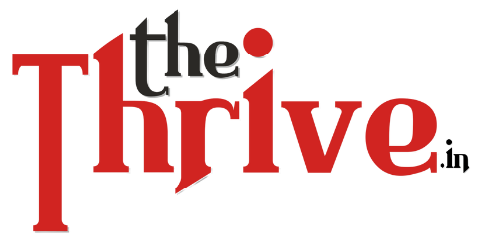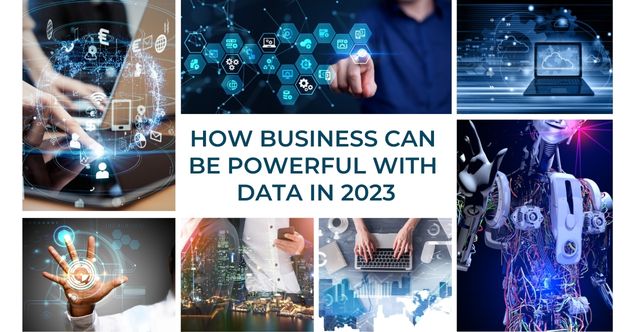As technologies capture and analyze data, so do businesses’ abilities to contextualize data and draw new insights from it. Through consumer behaviour and predictive analytics, companies regularly capture, store and analyze large amounts of qualitative data on the consumer base every day.
Data empowers business. By leveraging data to make informed decisions, managers gain the insight they need to propel their businesses forward.
Data can provide invaluable information on customer behaviour and preferences, giving managers better answers and allowing them to create more targeted, effective strategies.
Furthermore, understanding how data can help optimize internal processes and operations is just as important in growing a business. Data analysis enables businesses to pinpoint weak points in the system and monitor performance metrics accurately and consistently.
But without proper intervention, such insights are meaningless. To succeed in a competitive environment, managers must understand how to use that data in the right way for production maximization. They must configure an efficient process of data collection-storage-analysis-decision-making that will ensure continuous progress and success of the organization.
Of course, an accurate reading of data isn’t enough either; every decision made based on these readings should also be tested before implementation takes place to avoid any surprises or obstacles down the line. Testing alone won’t guarantee results – you’ll need hard work and dedication too – but it does allow for much smoother transit into successful strategy execution faster than ever before.
Some businesses have built a complete business model around consumer data, whether they sell personal information to a third party or create targeted ads to boost growth and promote their products and services.
Here’s a look at some of the ways How Business Can Be Powerful With Data In 2023 what they do with that information, and how they use it.
Types of consumer data businesses collect
The consumer data that businesses collect are four types of categories:
1) Personal data:
Includes personally identifiable information such as Social Security numbers and gender, as well as non-personally identifiable information, which includes your IP address, web browser cookies and device IDs (which both your laptop, tablets and mobile device have).
2) Engagement data:
This type of data details how consumers interact with a business’s website, mobile apps, text messages, social media pages, emails, paid ads and customer service routes are included.
3) Behavioural data:
This type of data includes transactional details such as purchase histories, product usage information (e.g., repeated actions) and qualitative data (e.g., mouse movement information).
4) Attitudinal data:
This data type encompasses metrics on consumer satisfaction, purchase criteria, product desirability and much more.
How do businesses collect your data?
Businesses collect data in many ways from many different sources. Some collection ways are highly technical, while others are more deductive.
Customer data can be collected in three ways:
- By directly asking customers,
- By indirectly tracking customers,
- By including other sources of customer data to your own.
There are a few different methods of data collection that you should know about.
1) Surveys
Most businesses ask customers directly for data. When anyone registers with a website, a form must be filled out. The business asks for customers' email addresses, names, contact numbers and other demographics like age, gender, and potentially more.
2) Websites tracking through Cookies and Web Beacons
Business websites are equipped with cookies and web beacons which enable businesses to track browsing histories. Businesses use cookies to know where customers have been on the web search, what they’ve searched for, what websites they have visited, and many more.
3) Email Tracking, Apps, and SDKs
Businesses often use email tracking to learn who has opened an email, in what location and on what type of device.
Similarly, apps are often set with SDKs supplied by third-party data trackers that are used to source consumer data. This is the most common way for data collection regarding mobile devices and digital Consumption data specifically.
4) Aggregators
Often, businesses also act as data aggregators. Businesses purchase or source consumer data from third parties to then be sold to other third parties.
Businesses turning data into knowledge
Collecting large amounts of data creates the problem of sorting through and analysing all that information. No human can reasonably sit down and read through line after line of customer data all day long, and even if they could, they probably wouldn’t make much of it.
Computers, however, sift through this data more quickly and efficiently than humans, and they can operate 24 hours or even 365 days without taking a break. As machine learning algorithms and other forms of AI increase and improve, data analytics becomes an even more powerful field for breaking down data into manageable tidbits of actionable insights.
Some AI programs will flag anomalies or offer recommendations to decision-makers within a firm based on contextual data. Without programs like these, all the data captured worldwide would be utterly useless.
Businesses can even use the best CRM software to store customer data in an easily accessible way that makes it useful to their sales and marketing teams.
How business can be powerful with data in 2023
Data can be a powerful tool when used correctly by businesses. It allows us to make better decisions, adapt our strategies quickly and gain insights into how customers engage with our product or service.
Organizations that understand the value of data are more likely to succeed than those without such a mindset. To become a data-driven business, you need to develop the skill set to collect, process and interpret data accurately.
This means gathering relevant data from multiple sources and making sense of it for practical use. You must also have an understanding of predictive analytics and modeling techniques to help anticipate customer behavior, trends in your industry and future opportunities which can be leveraged by your business.
The ability to utilize this insight conceptually makes all the difference between successful decision making on one hand and wasted resources on the other. Not only will this help you identify quick wins but also helps recognize which areas require further exploration or attention.
There are various ways businesses use the consumer data they collect and the insights they draw from that data.
1. To improve the customer experience
For many businesses, consumer data offers a way to understand customer needs better and boost customer engagement. When businesses analyze customer behaviour, as well as a massive inventory of reviews and feedback, they can modify their digital presence, goods or services to better suit the current marketplace.
Not only do businesses use consumer data to improve consumer experiences as a whole, but they also use data to make decisions on an individualized level.
The most important source of marketing intelligence comes from understanding customer data and using it to improve their website functionality.
2. To refine the marketing strategy
Contextualized data can help businesses understand how consumers engage with and respond to their marketing campaigns and adjust according to them. This highly predictive use case gives businesses an idea of what consumers want based on what they have already done and what new strategy they can come up with.
Like other aspects of consumer data analysis, marketing is becoming more about personalization according to the specific target audience.
Mapping users’ journeys and personalising their journey, not just through your website but with platforms like YouTube, LinkedIn, Facebook or any other website, is now essential for marketing strategy. Segmenting data effectively lets you market to only the people you know are most likely to engage.
3. To transform the data into cash flow
Businesses that capture data stand to profit from it. Data brokers or data service providers that buy and sell data or information on customers, have risen as a new industry alongside big data.
For businesses that capture massive amounts of data, collecting data and then selling it represent opportunities for new revenue streams. Businesses make by selling this consumer data to one another business or another to advertisers.
4. To secure more data
Some businesses even use consumer data as a means of securing more sensitive data. For example, banking institutions sometimes use voice recognition data to authorize a user to access their financial data or protect them from fraudulent attempts to steal their data.
These systems work by pairing data from a customer’s interaction with a call centre, machine learning algorithms, and tracking technologies that can identify and flag fraudulent attempts to access a customer’s account and get their data. This takes some of the guesswork and human error out of catching the fraud
How can you protect your data?
The following steps to keep your data as private as possible.
1) Block ads and trackers:
The ads you encounter while browsing the internet can collect your information. Many websites also include trackers that can obtain your data, and businesses can access this information. Browser extensions that block ads and trackers can create a privacy barrier around your data.
2) Use a VPN:
When you browse the internet with a VPN, you tunnel data from your device to a server. This tunnelling hides your browsing activity and puts up a wall between businesses and your data. The VPN will encrypt all your data or information as well.
3) Reconsider free apps and platforms:
Social media platforms are free because they sell your data to a third party to make a profit. That’s a reason to avoid free apps or limit your free app usage to solely those from reputable brands.
4) Avoid linking your apps:
Connecting your personal apps can make them more convenient to use, but these apps will also share your data with one another, same as third parties. See if you can go without connecting apps so you don’t build more bridges between those data-collecting things.
Indian Government's take on data privacy
The Indian government has introduced a new IT policy that needs virtual private network companies (VPNs) to collect extensive customer data and maintain it for five years or more. The directive came from the Computer Emergency Response Team, CERT-in. The new policy lists data centres and crypto exchanges under the same provision of law. The new policy will start in late June 2022.
VPN businesses will have to keep user information even after they delete their account or cancel their subscription. Businesses must store user names, IP addresses, usage patterns, and other identifiable data.
Usually, VPNs have a no-logging policy, business operate only with RAM-disk servers and other log-less technology because of which they are incapable of monitoring data and usage.
In April 2022, the Indian government banned 22 YouTube channels. In 2021, Twitter, Google, and Facebook had a standoff with the Indian government over control of social media content. Also, in 2020 the government banned over 200 Chinese apps.
According to the Ministry of Electronics and IT, the new policy aims to deal with the gaps that hinder the government from responding to certain cybercrime incidents.
How will the new policy affect the working of VPNs?
You should use a VPN mainly to keep your IP address private. It allows you to stay free of website trackers that track user data and location. Paid VPN offers a no-logging policy that gives complete privacy as it operates on RAM-only services.
With the new change, VPN businesses will be forced to store servers allowing them to log in with user data and store it for five years or more. Switching to storage servers means higher costs for businesses and user privacy will no more be the core functionality of these services.
If VPN services keep your data, what will they do with it?
Once the VPN business keeps your data, they can access connection logs. They can keep track of the time when you connected to VPN and how long you were connected.
Businesses can access the IP address and server you originally connected to. With the enforcement of the new policy, VPN service providers can share your connection logs with law enforcement.
They can also get access to your usage logs, including a list of websites you visit, content or message you’ve sent or received, list of applications and services you are accessing through your device. Also, they get access to your physical location.
Data privacy current situation and its future in India
The Indian Government has been trying to enact a Data Privacy bill since 2006 and still, people don't follow it. However, Indian consumers' data are largely unaware of the importance of safeguarding privacy or the possible harmful impact of indiscriminate personal data processing.
Government actions through legislation and data protection by businesses, firms and organisations are thus driven by rapid digitization; adoption of new technologies, such as data analytics, artificial intelligence, etc.; and automation of processes in profiling consumers' data.
Today many consumers are unaware of the harm caused by the misuse of our personal information tends to make us indifferent to data privacy protection.
To improve awareness of data privacy, the Indian government should start awareness initiatives along with corporates (as part of their corporate social responsibility) or with the assistance of Non-Governmental Organizations (NGOs), especially in rural areas about their data privacy.
Further, the basics and importance of privacy should be taught as part of the school activity. This will foster responsible data sharing by individuals and implement the needs of the proposed Digital Personal Data Protection Bill (when it becomes an act) by organisations.
Implementing these small steps will create a strong foundation within an organisation. In addition, the adoption of various changes in the new laws in data privacy or protection will become easy for people.
Summary
In this article, we discuss how businesses can be powerful with data in 2023 knowing customer preferences and habits allows businesses to improve the overall user experience of their website and all aspects of their branding.
Data has become a driving force in the business world. But using data effectively isn’t only about analytics; it's also about taking a holistic, conceptual approach to problem-solving.
Organizations must look beyond the traditional numbers and incorporate qualitative elements, such as customer behaviour and insights into how trends might evolve. Such considerations are essential for companies to make sound decisions that will lead to long-term sustainability.
FAQ's on Consumer data for businesses:
Data helps you understand and improve business processes so you can reduce wasted money and time.
This can include basic demographic information, like a customer's name, gender, location and contact information.
Data allows organizations to measure the effectiveness of a given strategy.






